From the beginning to the present day, the Vietnamese people have always been a peace - loving nation. This humanistic tradition is forged from the thousands of years of Vietnamese history and has been followed by generations of ancestors from the past to the present. Even when having to wage war to protect the country's independence and freedom, the entire Vietnamese nation still has a strong desire for peace. And Ho Chi Minh has excellently inherited that fine tradition of the nation as well as raised it to a new height.
In the difficult context of Vietnam right after the August Revolution in 1945 and then the two resistance wars against the French and against the US lasting up to 30 years, Ho Chi Minh's diplomacy for peace made a positive contribution in creating a favorable international environment, enlisting the support of progressive public opinion in the world for the recognition of Vietnam's independence, sovereignty and territorial integrity, and supporting Vietnam in the resistance against aggression war.
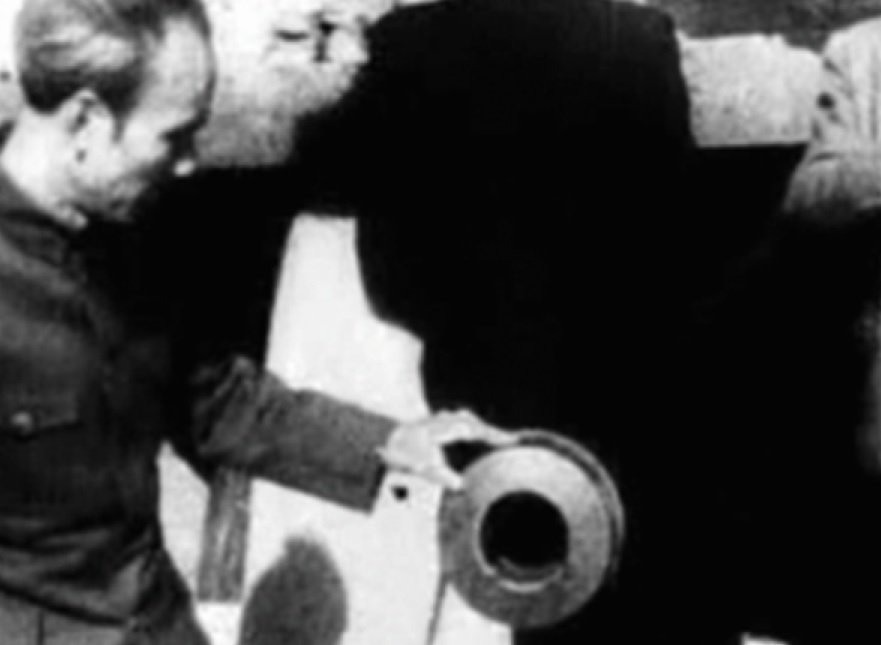
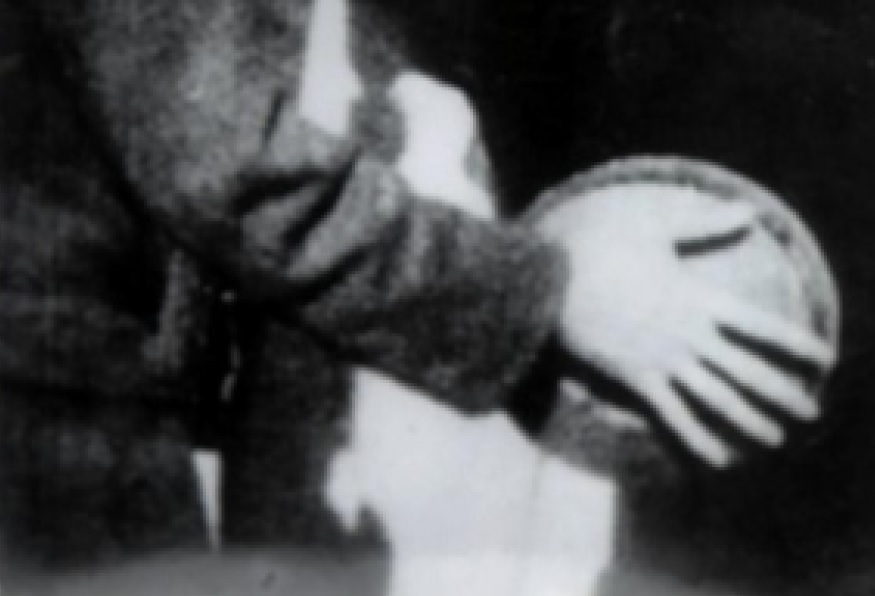
President Ho Chi Minh covers the barrel of a French warship in 1946.
With his profound and ingenious strategic vision, Ho Chi Minh recognized the importance of the relationship with the US to the peace of Vietnam. Establishing and maintaining a good relationship with the US - one of the world's leading powers, is a necessary premise for our country to maintain peace as well as being widely supported and recognized. In the world. That is why in the years before and after the Second World War, Ho Chi Minh tried to contact and call for support from the US government such as through relations with the OSS force, sending telegrams to the US president proposed to recognize the independence of Vietnam. However, his efforts at that time were not reciprocated by the US government.
Besides the US, for other big countries like UK, China. . . Ho Chi Minh also sought to establish and maintain a good relationship. Because he soon realized the importance of big countries in world politics and the strategic significance of relations with big countries. They have an important role in war and peace issues.
As for France, Ho Chi Minh also made a clear distinction between the invaders and his peace-loving French friends. Ho Chi Minh also went directly to France to negotiate, although the possibility of reaching a workable solution between the two sides was almost nonexistent. Ho Chi Minh entered into negotiations with the French in an effort to maintain peace, even though it was vulnerable to aggression and belligerence. The previous Preliminary Agreement on March 6, 1946 and the Temporary Agreement on September 14, 1946 were the documents that showed the most obvious concessions, goodwill and desire for peace in Ho Chi Minh's foreign policy and of our people.
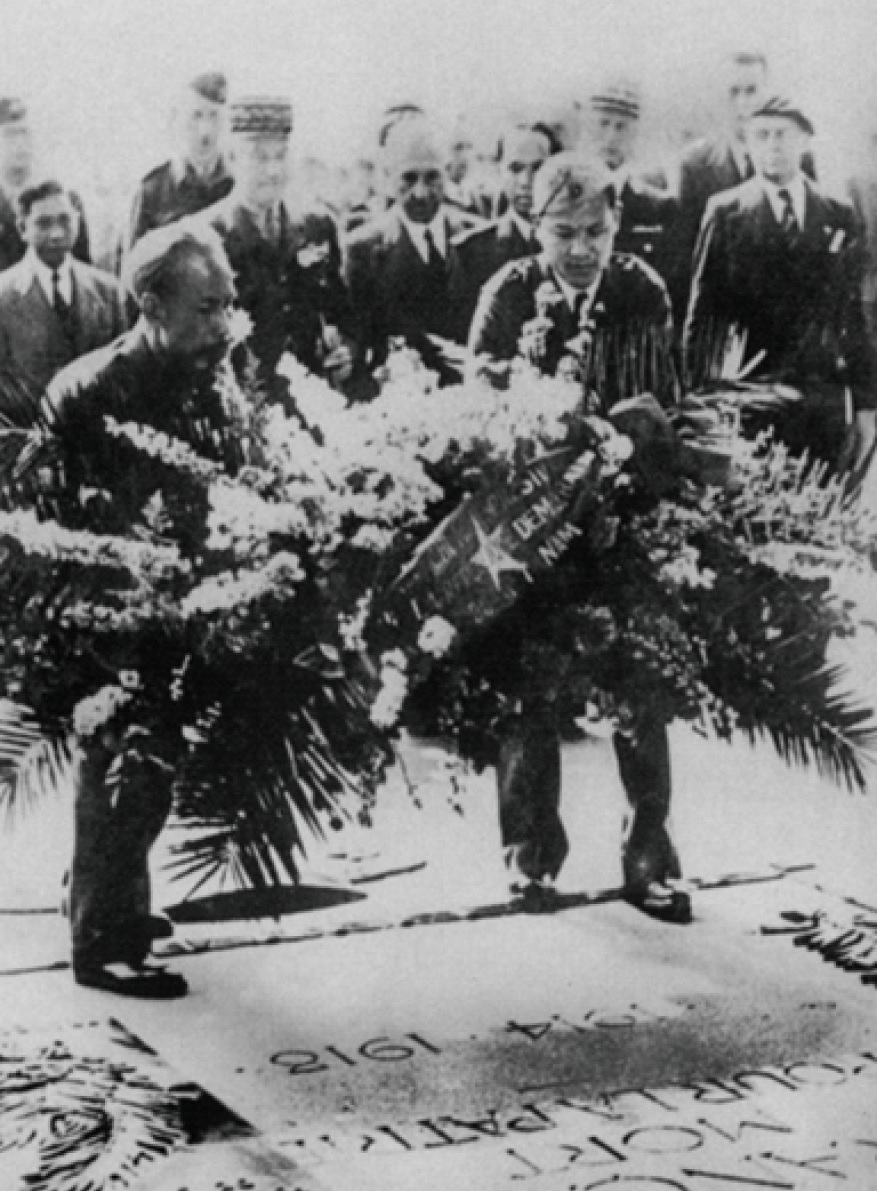
President Ho Chi Minh laid a wreath at the tomb of an unknown soldier at the Arc de Triomphe in Paris (France) on the French National Day July 14, 1946.
During the 9 years resistance war against the French, the foreign policy for peace was continued and Vietnam continued to receive the support of the French people. Although the war is fierce, but whenever there is an opportunity, President Ho Chi Minh always focuses on preparing the position for the country of Vietnam in the international arena once peace has been restored - a job only done can happen when there is absolute belief in the inevitable final victory of our country.
After 9 years under the ingenious leadership of the Party, led by President Ho Chi Minh, the resistance war against the French ended successfully with the victory of Dien Bien Phu (May 7, 1954). France was forced to sign the Geneva Agreement recognizing Vietnam's independence, sovereignty, unity and territorial integrity. However, soon after, the Vietnamese people had to continue the 21-year resistance war against the US to save the country.
In that context, Ho Chi Minh's diplomacy for peace continued to be implemented and pushed harder than ever. Vietnam continues to expand relations and strengthen solidarity with all peace-loving progressive democratic forces in the world.
In which, relations with socialist countries played a leading role in our country's relations at that time. The socialist bloc has been a solid, almost irreplaceable support for Vietnam in both spiritual and material terms during the two decades of fierce and arduous resistance war against the US. Therefore, our Party, State and people have always actively focused on preserving and cultivating this special relationship that has become stronger and deeper. President Ho Chi Minh also made many friendship visits to the Soviet Union, Poland, and Czechoslovakia to further tighten the friendship, understanding, trust, cooperation, and strive together for peace world, happiness and well-being for the people. A special thing in those trips is that President Ho Chi Minh not only met and exchanged with the heads of state of the host country in the mansions and palaces, but also visited and cared in an intimate and close manner, warm together the children, the elderly, women of your country. It is a typical demonstration of his noble and bright personality, including his desire for peace and happiness for the Vietnamese people and the world. Thereby, the socialist countries love and admire the Vietnamese people and President Ho Chi Minh even more.
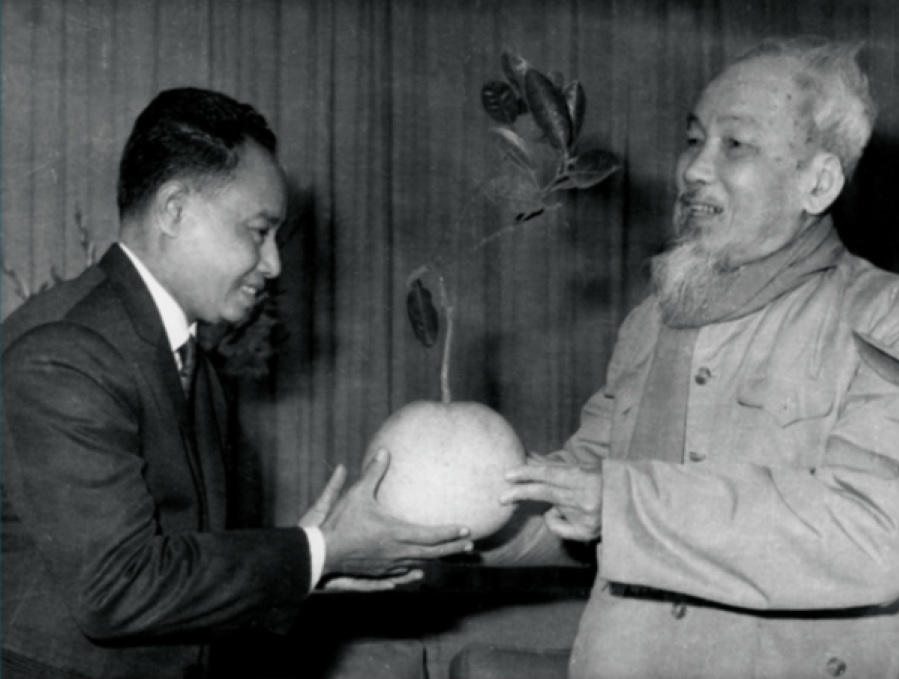
On December 31, 1968, President Ho Chi Minh gave His Royal Highness Prince Niphuritsara - Minister of Foreign Affairs of the Kingdom of Cambodia a grapefruit grown in the garden of the Presidential Palace.
Despite being a small country, newly recognized, and in the midst of a fierce war, Vietnam has continuously welcomed many heads of state from many countries, leaders and representatives of international organizations. come visit. Among those delegations were developing countries such as Indonesia and Guinea. Between these countries and Vietnam share many similarities. Although these countries also have their own problems, they have come to Vietnam to share, support and help Vietnam very wholeheartedly and sincerely.
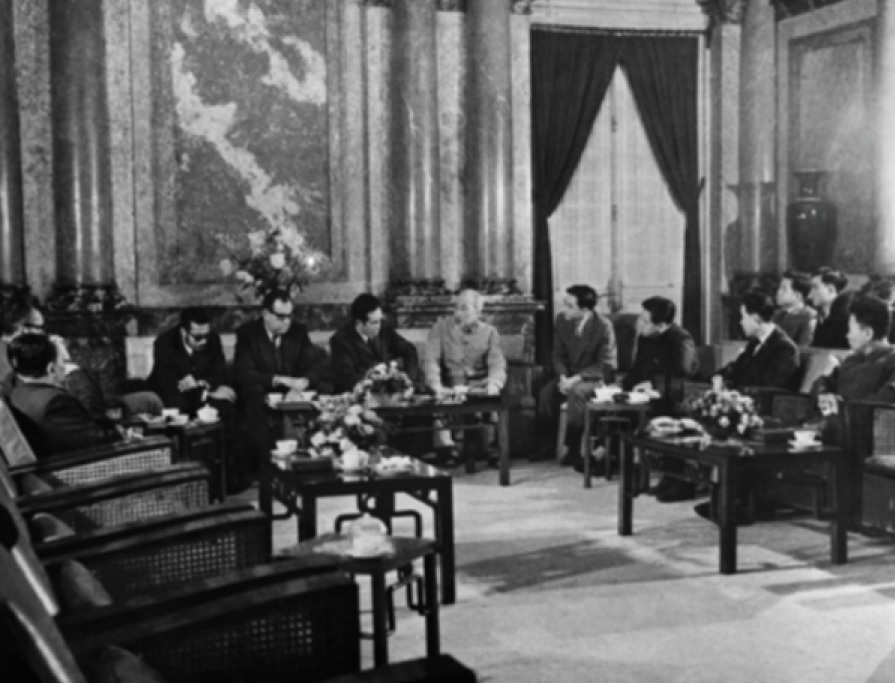
President Ho Chi Minh received a delegation of the People's Solidarity Organization on 3 continents (Asia-Africa-Latin America) led by Secretary General Osma Niciel Fuegos to visit Vietnam on March 7, 1967.
President Ho Chi Minh also welcomed delegations and heads of state of the world's leading powers such as the Soviet Union, Great Britain, France, and Germany, expressing Vietnam's desire for peace and harmony. His just war has established an important position in the world. Delegations and leaders of major international organizations such as the World Peace Council, the Asia-Africa-Latin America Solidarity Committee, the Brussels International Court, ... also came to Vietnam to present their presentations expressed support and recognition of great contributions of Vietnam and President Ho Chi Minh to the cause of world peace, independence and progress; as well as helping Vietnam in the resistance war against the US.
Besides, President Ho Chi Minh also expressed his concern and sharing with those who love and fight for peace. After Mr. Norman Morrison, an American citizen set himself on fire in front of the US Department of Defense on November 2, 1965 to protest the US war of aggression in Vietnam, President Ho Chi Minh, when he could not be on duty. continued to visit him, encourage and share with his family, he sent a letter to his wife Anne Morrison with warm, friendly words, sincere concern like a family member. In the letter, he expressed his heroic, extraordinary act of fighting, sacrificing himself to awaken the conscience of the people and his US government, a soldier fighting for peace, will always be respected. Vietnamese people will always remember their hearts.
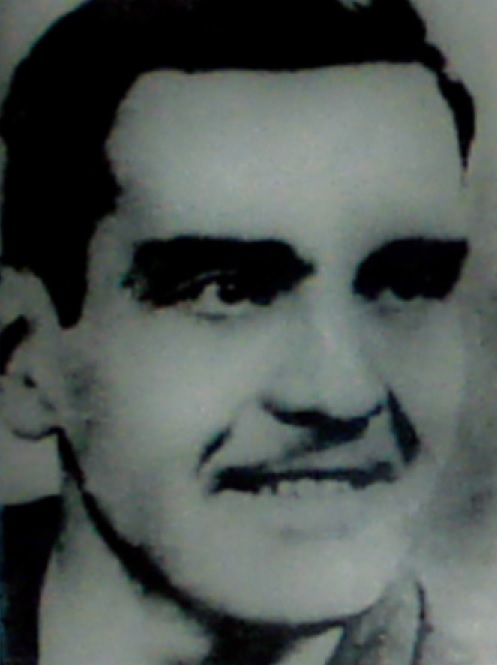
Portrait of Norman Morrison, an American citizen who set himself on fire in front of the US Department of Defense on November 2, 1965 to protest the US war of aggression in Vietnam.
In the last years, although his health had declined, the desire for peace still burned in President Ho Chi Minh. He still worked hard and persisted in his way of fighting for peace, independence and freedom for Vietnam and the world.
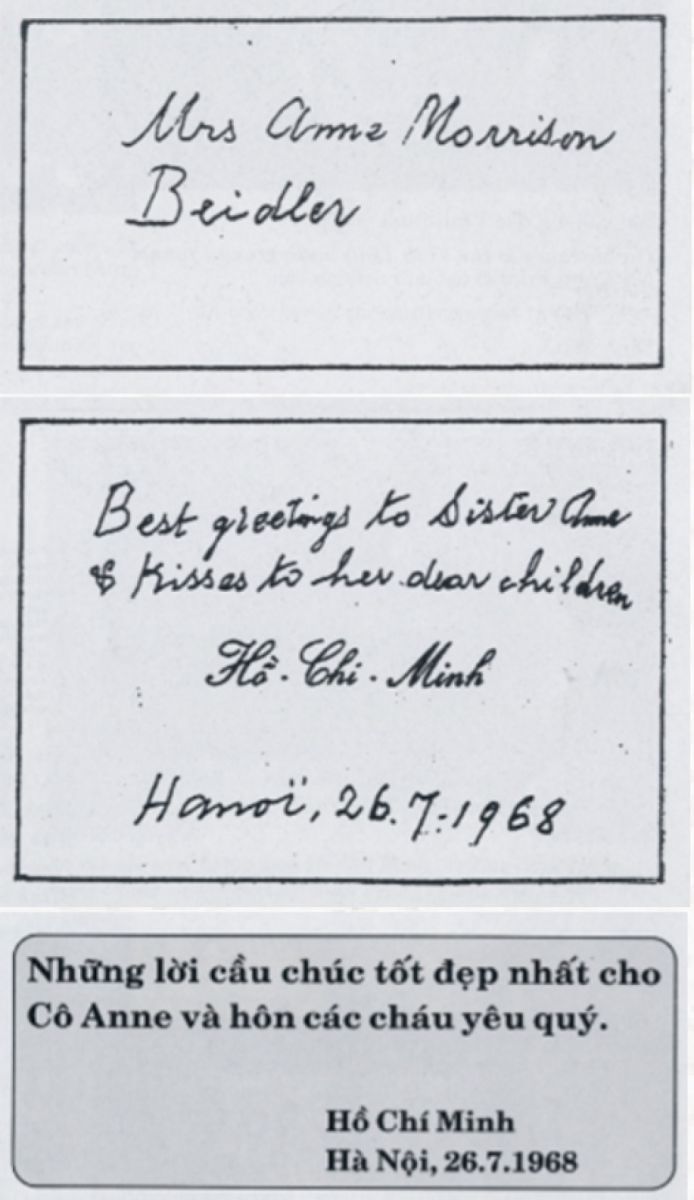
Postcard President Ho Chi Minh sent to Anne Morrison after her husband set himself on fire to protest the Vietnam War on July 26, 1968.
It can be said that Ho Chi Minh's directing of construction, policy making, foreign policy and direct diplomatic activities centered around his thought for peace has become one of the decisive factor in the victory of the Vietnamese revolution.
The foreign policy for peace, cooperation and development is the expression of Ho Chi Minh's burning desire for peace and the red thread throughout Vietnam's foreign policy career. During the Ho Chi Minh era, the great achievements that Vietnam had achieved in the two previous resistance wars as well as in the past half century since the country entered the period of peace, independence and unification. The most important thing is to affirm in practice the correctness of that foreign policy for peace.
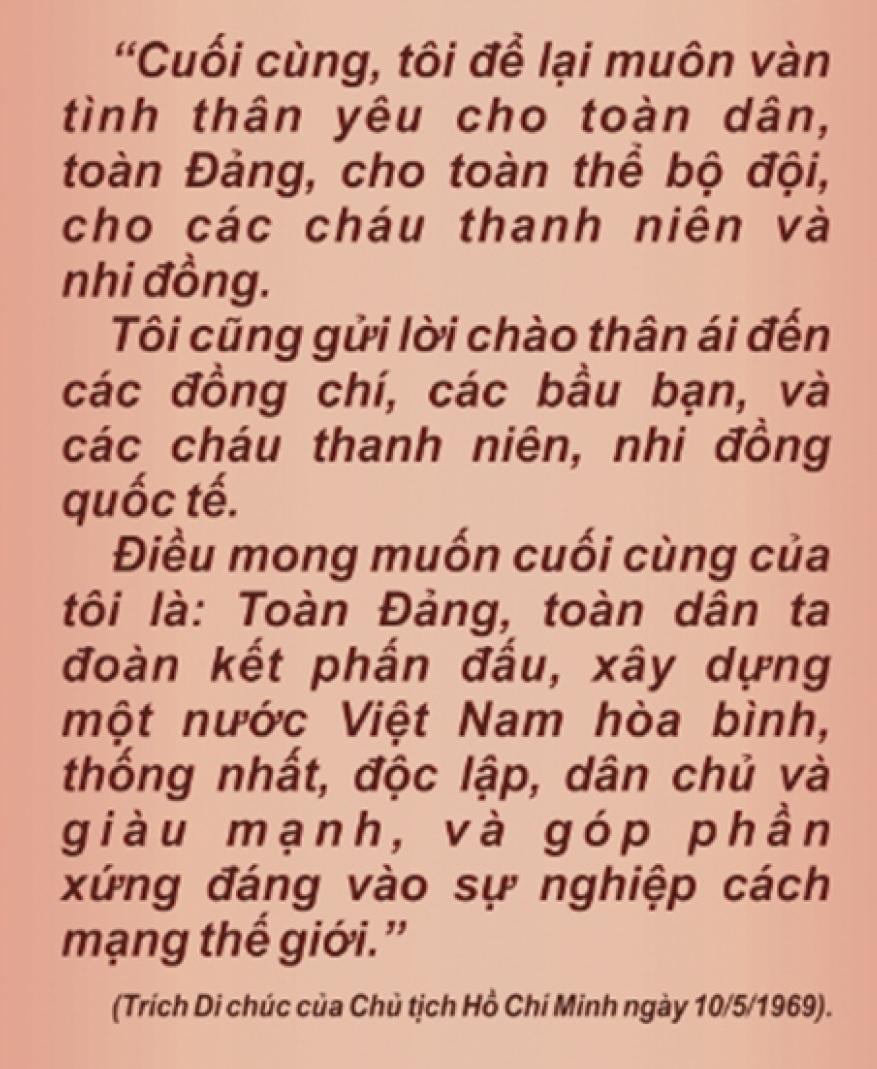
In order to promote good values and learn, to follow Ho Chi Minh's moral example, especially to want the public to know about his peaceful aspiration during his lifetime, the War Remnants Museum has gathered documents, images and brought to the public the exhibition "Ho Chi Minh's aspiration for peace", the exhibition has been displayed in many localities, units, agencies and schools. The exhibition helps viewers to fully and deeply understand Ho Chi Minh's thoughts, feelings and personality, especially the aspiration for peace, the aspiration for national liberation, independence and reunification for the Fatherland. nation, happiness for the people of the beloved leader of the Vietnamese nation. The exhibition also hopes to contribute to raising awareness and acting responsibility for the public at home and abroad, especially the young generation, in the spirit of fighting for peace and cooperation, stability and development in Vietnam. South and on our planet.
(Source of material in the article: Exhibition set: "Ho Chi Minh's aspiration for peace" at the War Remnants Museum)